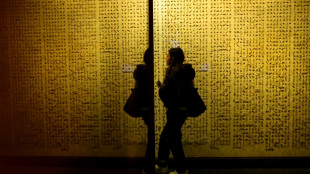
-
 England rugby captain Itoje slams Ratcliffe's 'ridiculous' immigration comments
England rugby captain Itoje slams Ratcliffe's 'ridiculous' immigration comments
-
Europe should speak to Russia with 'one voice', Putin foe says
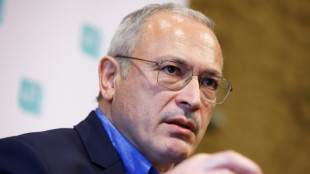
-
 US Congress impasse over immigration set to trigger partial shutdown
US Congress impasse over immigration set to trigger partial shutdown
-
US to deploy new aircraft carrier to Middle East as Trump warns Iran
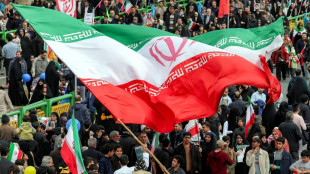
-
 Ubisoft targets new decade of 'Rainbow 6' with China expansion
Ubisoft targets new decade of 'Rainbow 6' with China expansion
-
Stocks trend lower as AI disruption worries move to fore

-
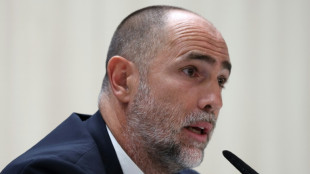 Spurs set to hire Tudor as interim boss until end of season: reports
Spurs set to hire Tudor as interim boss until end of season: reports
-
International crew en route to space station

-
 Man City's Rodri charged over ref rant
Man City's Rodri charged over ref rant
-
Italian biathlete Passler cleared to compete at Olympics despite positive test
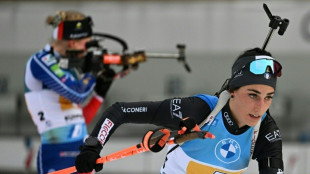
-
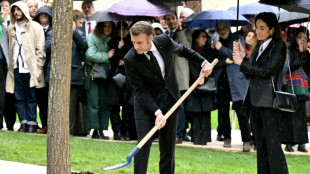 Macron slams 'antisemitic hydra' as he honours 2006 Jewish murder victim
Macron slams 'antisemitic hydra' as he honours 2006 Jewish murder victim
-
Tuipulotu warns England to beware 'desperate' Scotland in Six Nations

-
 Cash-starved French hospitals ask public to pitch in
Cash-starved French hospitals ask public to pitch in
-
US consumer inflation eases more than expected to lowest since May
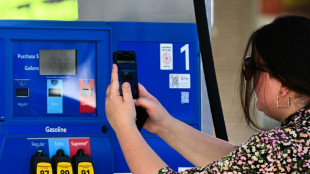
-
 Germany's Merz urges US to repair ties with Europe
Germany's Merz urges US to repair ties with Europe
-
Europe seeks new 'partnership' with US at security gathering

-
 Fresh water leak adds to Louvre museum woes
Fresh water leak adds to Louvre museum woes
-
Floods wreak havoc in Morocco farmlands after severe drought
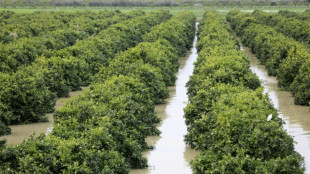
-
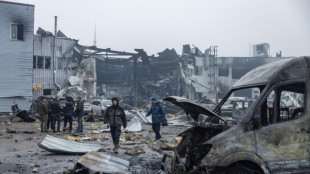 Russia, Ukraine to hold talks in Geneva on February 17-18
Russia, Ukraine to hold talks in Geneva on February 17-18
-
Ukraine's Heraskevych hopes 'truth will prevail' in Olympics appeal
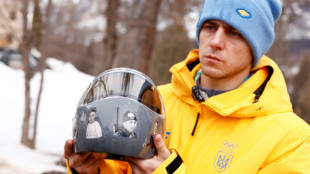
-
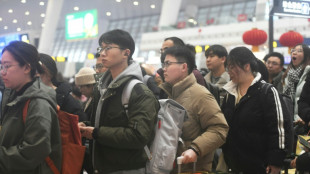 Dumplings and work stress as Chinese rush home for Lunar New Year
Dumplings and work stress as Chinese rush home for Lunar New Year
-
Macron denounces 'antisemitic hydra' as he honours 2006 Jewish murder victim
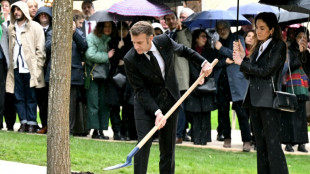
-
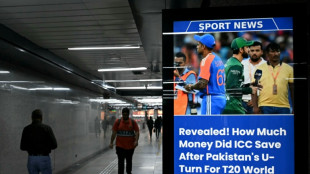 India-Pakistan: Hottest ticket in cricket sparks T20 World Cup fever
India-Pakistan: Hottest ticket in cricket sparks T20 World Cup fever
-
Cross-country king Klaebo equals Winter Olympics record with eighth gold

-
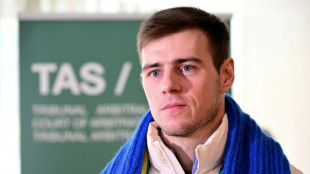 Ukraine's Heraskevych appeals to CAS over Olympic ban as Malinin eyes second gold
Ukraine's Heraskevych appeals to CAS over Olympic ban as Malinin eyes second gold
-
Stocks mostly drop after Wall Street slide

-
 Sophie Adenot, the second French woman to fly to space
Sophie Adenot, the second French woman to fly to space
-
Alleged rape victim of Norway princess's son says she took sleeping pills

-
 Activist group Palestine Action wins legal challenge against UK ban
Activist group Palestine Action wins legal challenge against UK ban
-
Driven by Dhoni, Pakistan's X-factor tweaker Tariq targets India

-
 Davidson set to make history as Ireland seek to rebound against Italy
Davidson set to make history as Ireland seek to rebound against Italy
-
Europe defends NATO, US ties at security gathering

-
 China's fireworks heartland faces fizzling Lunar New Year sales
China's fireworks heartland faces fizzling Lunar New Year sales
-
Bangladesh's Yunus 'banker to the poor', pushing democratic reform
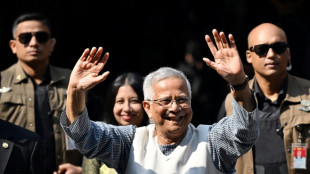
-
 Cracknell given Six Nations debut as Wales make changes for France
Cracknell given Six Nations debut as Wales make changes for France
-
L'Oreal shares sink as sales miss forecasts

-
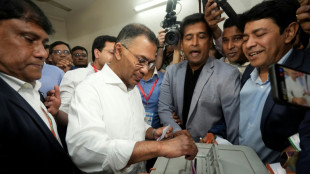 Bangladesh nationalists celebrate landslide win, Islamists cry foul
Bangladesh nationalists celebrate landslide win, Islamists cry foul
-
Thai PM agrees coalition with Thaksin-backed party

-
 Zimbabwe pull off shock win over Australia at T20 World Cup
Zimbabwe pull off shock win over Australia at T20 World Cup
-
Merz, Macron to address first day of Munich security meet

-
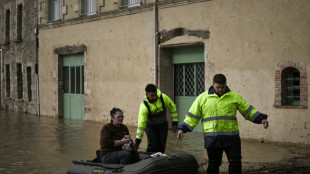 Three dead, many without power after storm lashes France and Spain
Three dead, many without power after storm lashes France and Spain
-
Bennett half-century as Zimbabwe make 169-2 against Australia
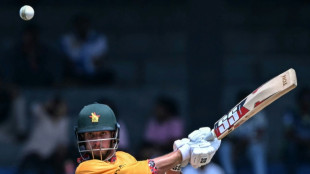
-
 Asian stocks track Wall St down as traders rethink tech bets
Asian stocks track Wall St down as traders rethink tech bets
-
'Weak by design' African Union gathers for summit
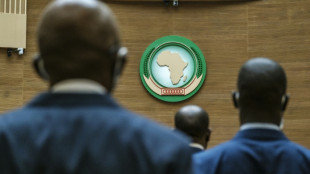
-
 Nigerian conservative city turns to online matchmaking for love
Nigerian conservative city turns to online matchmaking for love
-
Serb-zero: the 'iceman' seeking solace in extreme cold
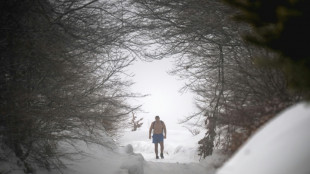
-
 LeBron James nabs another NBA milestone with triple-double in Lakers win
LeBron James nabs another NBA milestone with triple-double in Lakers win
-
Hundreds of thousands without power after storm lashes France
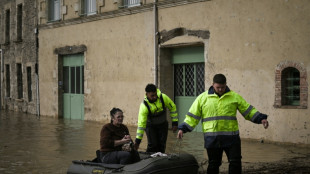
-
 US Congress impasse over migrant crackdown set to trigger partial shutdown
US Congress impasse over migrant crackdown set to trigger partial shutdown
-
AI's bitter rivalry heads to Washington


S.African journalist, 90, delivers news in the desert
Armed with a flask of coffee, some boiled eggs and a towel to shield his bare legs from the scorching sun, 90-year-old Frans Hugo sets off every Thursday to deliver newspapers in the South African desert.
Week in, week out, the elderly editor has made the 1,200-kilometre (750-mile) round trip across the semi-arid Karoo region in the country's south.
He has been doing it for some four decades.
Born Charl Francois Hugo in Cape Town in 1932 -- but known to everyone simply as Frans -- he is arguably the last bastion of a dying business.
The energetic nonagenarian edits and hand-delivers three local papers -- The Messenger, Die Noordwester and Die Oewernuus.
Driving an orange Fiat Multipla stacked with copies of the eight-page weeklies and with an old portable radio to keep him company, Hugo brings news to towns and villages dotting this vast, parched back-country.
- 1,200 km every week -
He leaves at 1:30 am from Calvinia, a small town of less than 3,000 souls about 500 kilometres north of Africa's southernmost tip, and comes back in the early evening.
"I am like a pompdonkie," he told AFP on a recent tour, using the local moniker for the nodding donkey pumps used to extract groundwater from boreholes.
"I keep doing this every Thursday without fail. I will probably stop when I am physically not capable of doing it anymore."
Hugo worked as a journalist in Cape Town and then in Namibia for almost 30 years before retiring to this remote region.
"I couldn't handle the pressure anymore, so I moved to the Karoo," he said.
"Just as I was able to take a breath and relax, the man who owned the printers and the newspaper here in Calvinia came to ask me if I was interested in the business."
His daughter and her husband got involved but tired and quit after a few months. "I've been sitting with this thing ever since," he quipped.
- Cellphones and printers -
Helped by his wife and three assistants, he has kept alive some historic small-town titles at a time where many printed newspapers around the world are struggling to survive the digital age.
The Messenger, previously known as the Victoria West Messenger, was founded in 1875, while Die Noordwester and Die Oewernuus started printing in the 1900s.
All three are written in Afrikaans, a language descended from Dutch settlers and one of South Africa's 11 official tongues, but sometimes carry stories in English.
Hugo scoffs at people wanting "to read the news on their cellphones."
The rise of internet has hit readership but is seemingly yet to reach his newsroom, which looks like a museum.
The office is adorned by an old Heidelberg printing press and paper cutting machines. Staff use computers and software from the early 90s.
Still, Hugo's team prints about 1,300 copies a week, something he says shows an undying appetite for community news.
The papers sell for eight rand (about 50 US cents) and are dropped off at shops, convenience stores and the correspondents' homes.
The readers are mainly farmers, living in a remote, semi-arid landscape.
Writing in Afrikaans, which actor Charlize Theron recently controversially said was still spoken only by "about 44 people", keeps the language alive and ties together small communities separated by hundreds of kilometres (miles) of desert, said Hugo.
As long as he's around and has the required strength, they will receive their paper every Thursday.
What will happen later does not concern him, he said.
"I don't have a clue what will happen... in five years or 10 years," he said. "I am not worried."
N.AbuHussein--SF-PST


